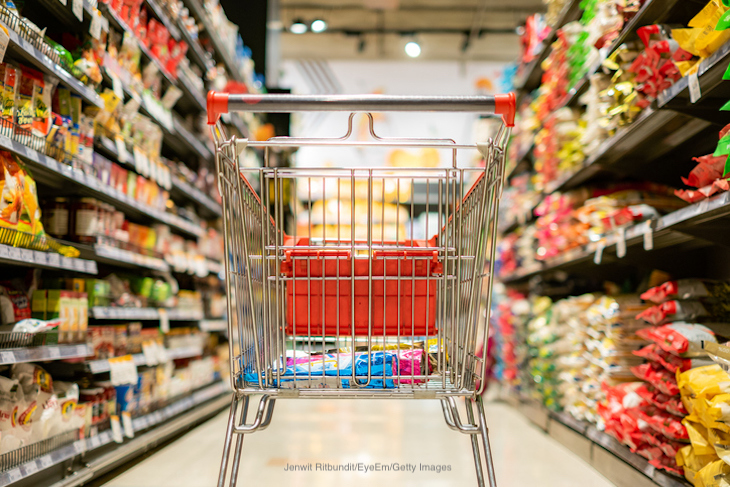The FDA releases more info about shopping for food during the coronavirus pandemic. Information about the virus keeps changing as scientists learn more about it.

The first statement is, “We want to reassure consumers that there is currently no evidence of human or animal food or food packaging being associated with transmission of the coronavirus that causes COVID-19. This particular coronavirus causes respiratory illness and is spread from person-to-person, unlike foodborne gastrointestinal or GI viruses, such as norovirus and hepatitis A that often make people ill through contaminated food.”
FDA also says that although your local grocery store may be temporarily out of some products, there are no nationwide shortages of food since food production and manufacturing is spread throughout the country.
To help protect yourself, grocery store workers, and other shoppers, the government is offering tips and requesting that consumers follow them.
First, prepare a shopping list in advance so you don’t have to spend a lot of time in the store. Buy just 1 to 2 weeks worth of groceries at a home; don’t buy to hoard food or supplies.
Wear a face mask when you are out. Some stores and localities require it.
Carry your own antiseptic wipes, or use one provided by the store. Wipe down the handles of the shopping cart or basket. If you use reusable bags, clean them after each use.
Practice social distancing while shopping. Stay at least 6 feet away from other shoppers and employees. Keep your hands away from your face.
When you get home wash your hands with soap and warm water for at least 20 seconds. Do this again after you put your groceries away.
You can wipe down product packaging and allow it to air dry as an extra precaution against the virus. But again, there is no evidence of food packaging associated with the transmission of COVID-19.
And follow all of the usual food safety practices when preparing your food. Rinse fruits and veggies. Clean the lids of canned foods before opening them. Refrigerate or freeze meat, poultry, eggs, seafood, and other perishables within 2 hours of purchase. And regularly clean and sanitize your. kitchen counters. Do not use this solution or other disinfecting products on food. Follow these tips for pandemic food shopping to stay safe.




